Ben Abatti III cradled the sugarbeet in his arm, slicing it open. The blade carved through the beet’s dusty, gnarled exterior, revealing a sweet white core.
It was a hot mid-July morning. Abatti was standing in between dusty green furrows of sugarbeets in a field on the outskirts of El Centro. The golden, football-sized beet in his arms was large and packed with sugar — the same kind his family has grown here for decades.
Some of the sweetest, largest sugar beets in the world are grown in the Imperial Valley. The region has nutrient-rich soil, an abundance of sunlight and century-old claims to water from the Colorado River. Most importantly, the valley has the Spreckels Sugar factory in Brawley, which processes beets into sugar by the truckload.
But the valley likely won’t be able to grow sugarbeets for much longer.
That’s because this spring, the owner of the Spreckels factory, Southern Minnesota Beet Sugar Cooperative, announced plans to shut down the plant and consolidate their sugar operations to the Midwest.
Due to strict federal limits on who can make beet sugar in the United States, the Imperial Valley will be unable to process any more beets once the plant closes — effectively ending sugarbeet farming in the region.
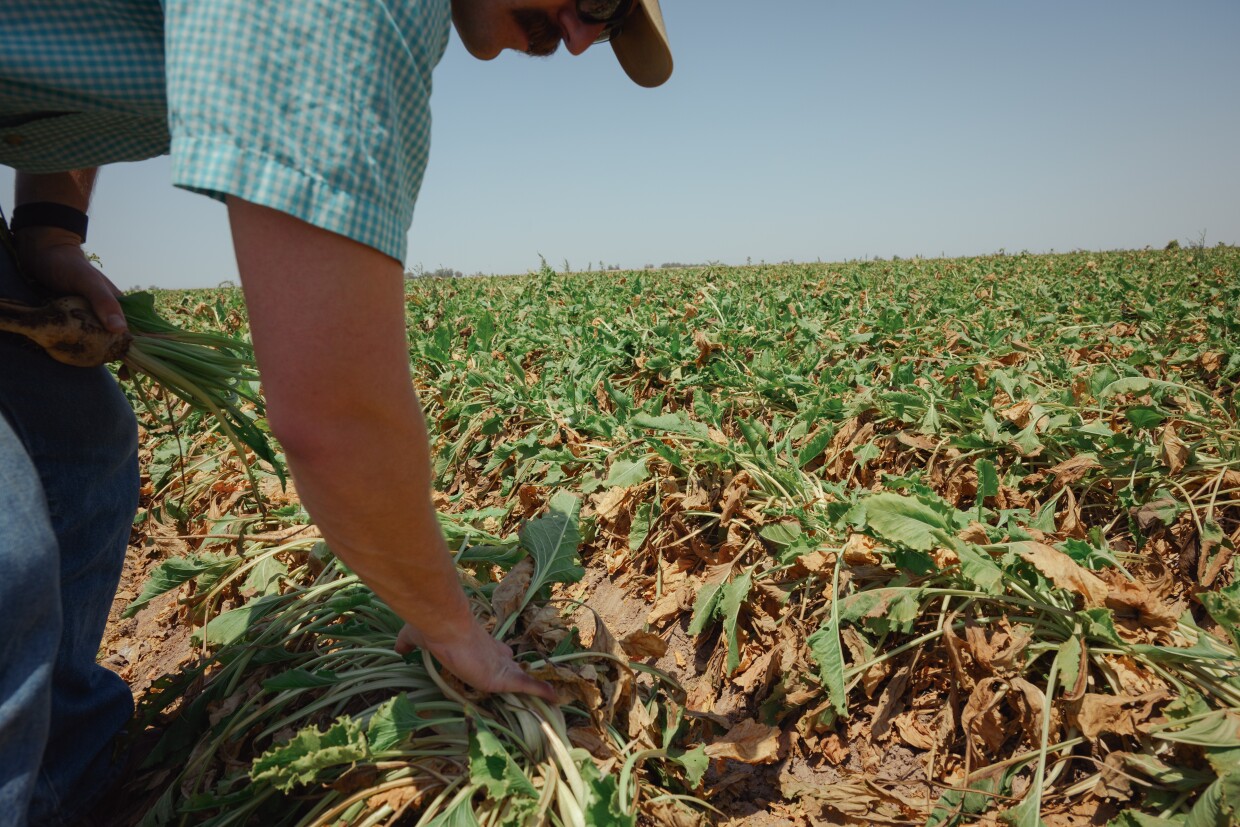
The news has rocked the Imperial Valley, where jobs are hard to come by and farming is the second-largest employer. County officials say the plant’s closure means the loss of a $243 million industry and more than 700 local jobs.
By the numbers, sugarbeet and sugarcane farming together account for roughly 2% of the total crop value produced by the region’s powerful agriculture industry.
Some elected leaders are holding onto hopes that they can keep the industry alive. Earlier this summer, members of the Imperial County Board of Supervisors traveled to Washington D.C. in a bid to secure the federal permissions needed to build a new beet sugar plant.
For many though, the closure has resurfaced old questions about the impacts of a shrinking industry on a region that depends on it so heavily.
“It’s not the first time a crop has left the Imperial Valley,” Abatti said. “The million dollar-question is, what do we grow now?”

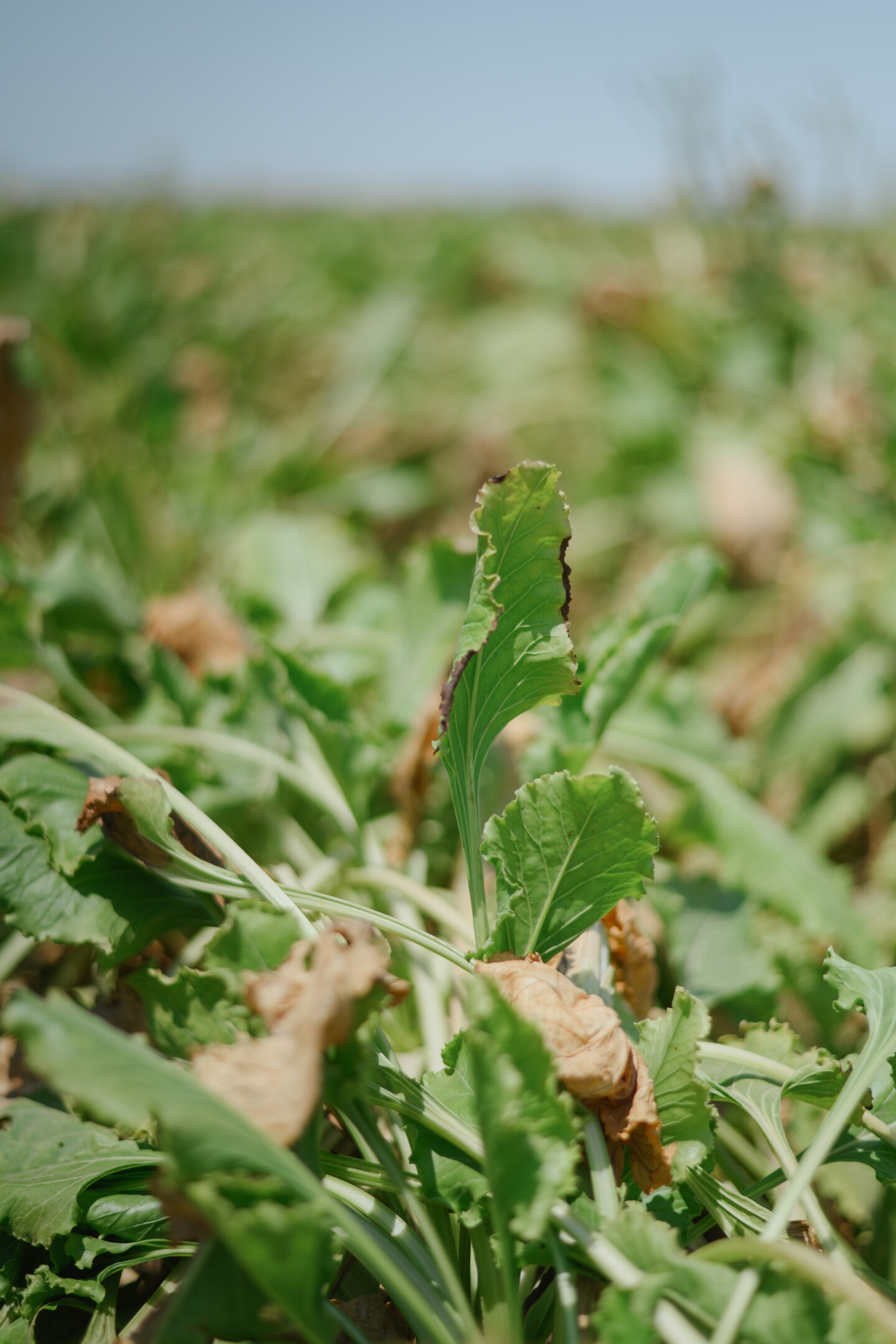
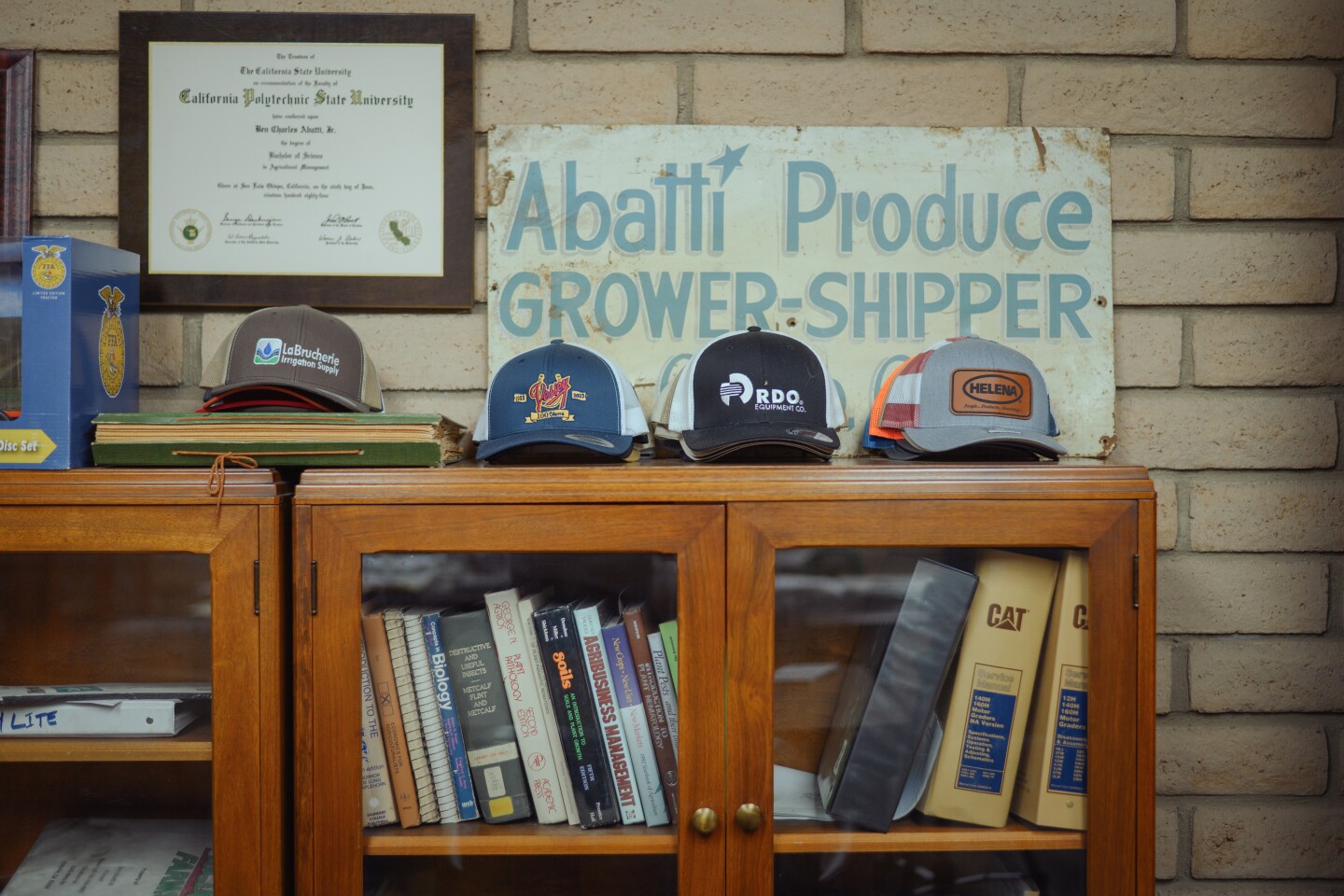
California has been turning beets into sugar since the late 1800s.
The first sugarbeet factory in the continental U.S. was built in Alvarado, across the bay from San Francisco. At the industry’s height, there were 11 factories and hundreds of thousands of acres of sugarbeet farms across the state, reaching from Orange County to the Sacramento Valley.
Sugarbeets are different from most crops because they need to be sent to a factory almost immediately.
Many crops, like carrots and lettuce, are shipped elsewhere for storage and processing. But the beets will start to go bad quickly, meaning they need to be turned into sugar first before they can be sold and stored.

The Imperial Valley has long stood out as one of the state’s most productive regions for beet farming. In 2020, the valley’s farmers grew nearly 1.2 million tons of beets on just 24,000 acres of land.
“It's probably the most efficient place in the world to grow sugar,” said Stephen Kaffka, a retired agronomist and extension specialist at UC Davis, whose research focused on sugarbeets.
Armando Gonzalez of El Centro has been hauling sugar beets since he was 18. His family’s trucking company has worked with the Abatti family to harvest and transport their sugarbeets since the 1980s.
“We have the best weather for them, we have the water, we have everything,” Gonzalez said. “Nobody else farms beets like we do here.”
However, while beets might be a good fit for California, they aren’t as profitable as crops like tomatoes or almonds. Almost all of those 11 factories have closed in recent decades. Most U.S. sugarbeet farming is now concentrated in Midwestern states like Minnesota, Idaho and North Dakota.
But the Imperial Valley has held on.


In 2004, the Southern Minnesota Beet Sugar Cooperative purchased the towering Spreckels factory in Brawley, then known as the Holly Sugar plant.
Southern Minnesota is a farmer-owned cooperative based in Minnesota, a powerhouse state for beet sugar production. As part of the acquisition, the company also purchased a second factory in Mendota, a small town in California’s San Joaquin Valley.
Two years later, Southern Minnesota shut down the Mendota plant. San Joaquin Valley farmers formed a cooperative and tried to purchase the Mendota plant, but they were unsuccessful.
Instead, the company moved that plant’s operations back to the Midwest, leaving Spreckels as the only beet sugar factory in California.
Southern Minnesota continued to run Spreckels for two decades. But the company faced fines for violating workplace safety rules and allegations of mismanagement from workers and farmers.
In 2020, Southern Minnesota faced a class action lawsuit brought by a Spreckels employee, who accused the company of failing to tally wages properly, reimburse expenses and provide full breaks for rest and meals. The company did not admit to any wrongdoing but agreed to settle the lawsuit in 2023 for $2.4 million.
In 2023, workers at Spreckels also went on strike for almost two weeks, demanding a stronger pension plan. The company agreed to a settlement within the month, and union members returned to work.
But earlier this year, Abatti said farmers’ talks with the company’s leaders started to unravel.
In April, Southern Minnesota’s leaders announced they were closing the plant for good. In a statement, they said they had invested almost $100 million in repairs and retrofitting and had increased total annual pay for employees by two thirds since taking over the aging sugar plant.
“The costs of operating the Spreckels facility have continued to escalate,” said Paul Fry, Southern Minnesota’s president and CEO, in a statement. “As a result, we made the difficult decision to close the Brawley factory and carefully focus our resources on the Renville, Minnesota factory.”
The company did not agree to an interview request from KPBS. The union representing workers at the plant, UFCW Local 135, also did not respond to interview requests.
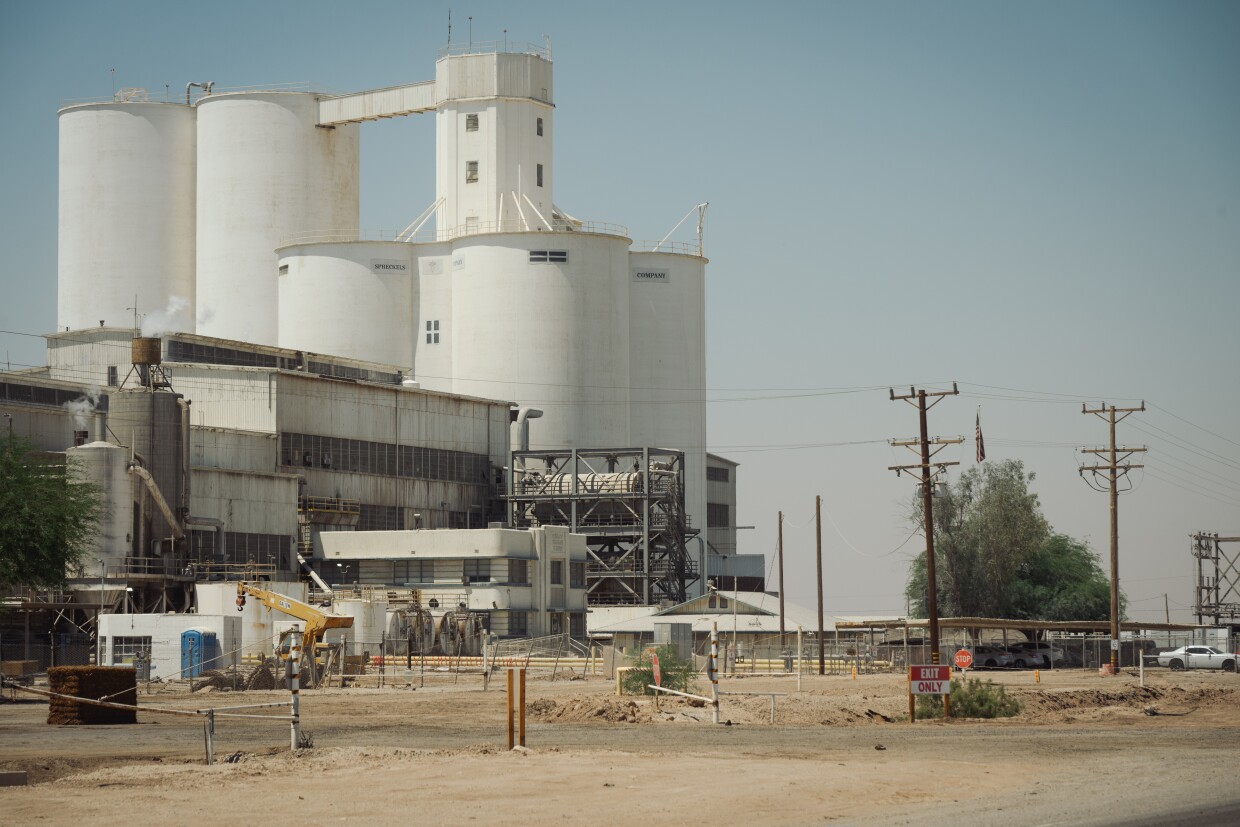
The closure is a major blow to workers in Imperial County as the regional economy faces growing uncertainty under the second Trump administration.
The projected job losses from the Spreckels plant are especially significant because Imperial County is one of the poorest corners of California, with the highest unemployment rate in the state.
“For a region that has 60,000 total jobs on any given day, (700 is) a big number,” said Michael Bracken, the county’s contracted economic analyst, at a Board of Supervisors’ meeting earlier this year.
Gonzalez, the sugarbeet hauler, is one of the many workers who will be losing out. Sugarbeets make up about 80% of his income.
“Our valley's already struggling with so much,” he said. “You take away a big company like that, you're going to put even a bigger hit on our economy.”
To be clear, it’s not that there won’t be demand for more sugarbeets.
The crop is a $1.8 billion industry in the US and accounts for more than 55% of all sugar produced domestically. Before the Spreckels factory was built, Imperial Valley farmers would ship their beets to sugar plants elsewhere in California.
But the challenge for the Imperial Valley today is that the federal government now places tight restrictions on the U.S. sugar market that will prevent the region from making any more beet sugar once the factory closes.
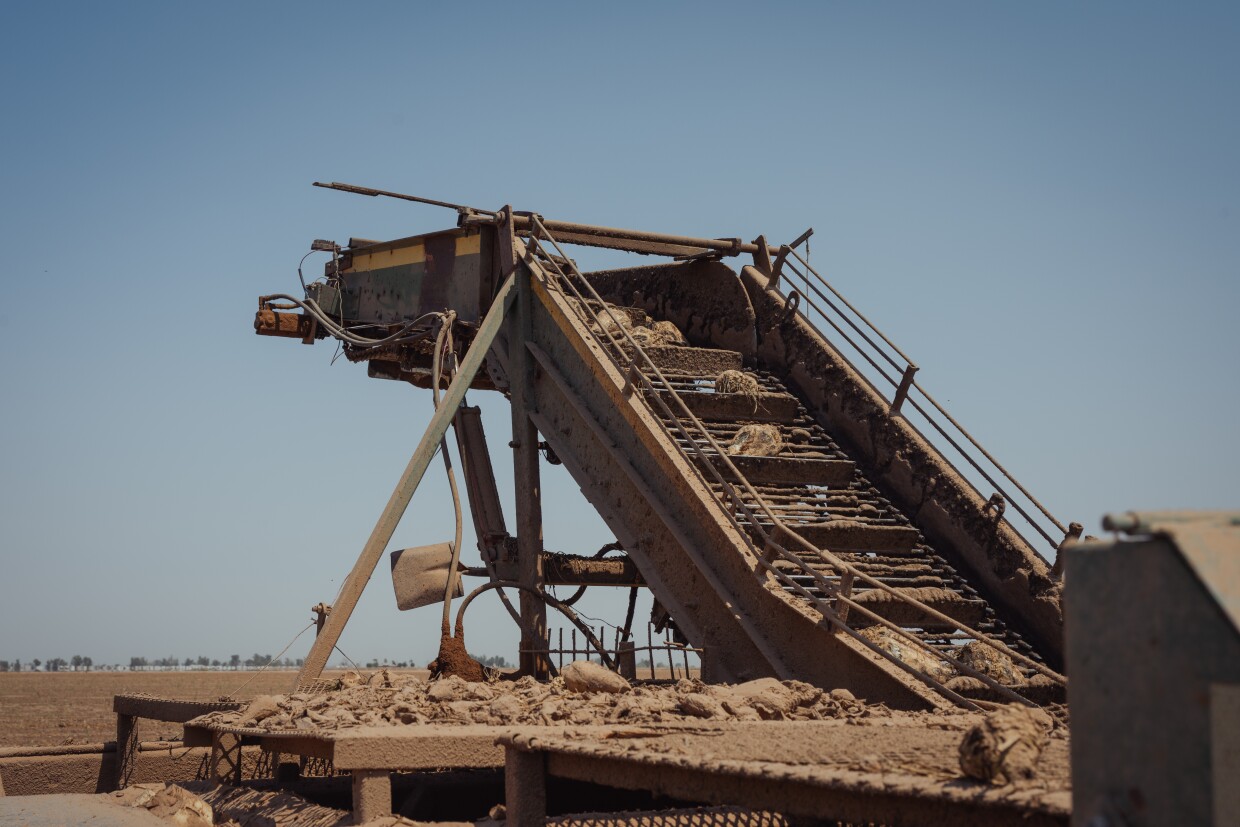
The way it works is that the federal government gives out beet sugar allocations, or quotas, to a small number of specific sugar processing companies. Those companies then decide which farms get to grow the actual sugarbeets.
This year, for example, the U.S. Department of Agriculture allocated 5.7 million tons of beet sugar to be made in the U.S. Officials gave quotas to seven companies, including Southern Minnesota, to process that sugar.
The federal government also uses a mix of other tactics, including government loans and tariffs on imported sugar.
According to Kaffka, the UC Davis agronomist, the overarching goal of these policies is to give U.S. sugar producers an advantage over international companies — and protect the economic health of rural communities.
But that system also means that, if a company like Southern Minnesota decides to move its sugar operations back to the Midwest, it eliminates the Imperial Valley’s ability to produce sugar in the future.
“Their intention now is to close this factory and remove sugar production back to Minnesota,” Kaffka said. “They are unwilling to sell the factory and the right to produce sugar to local interests.”
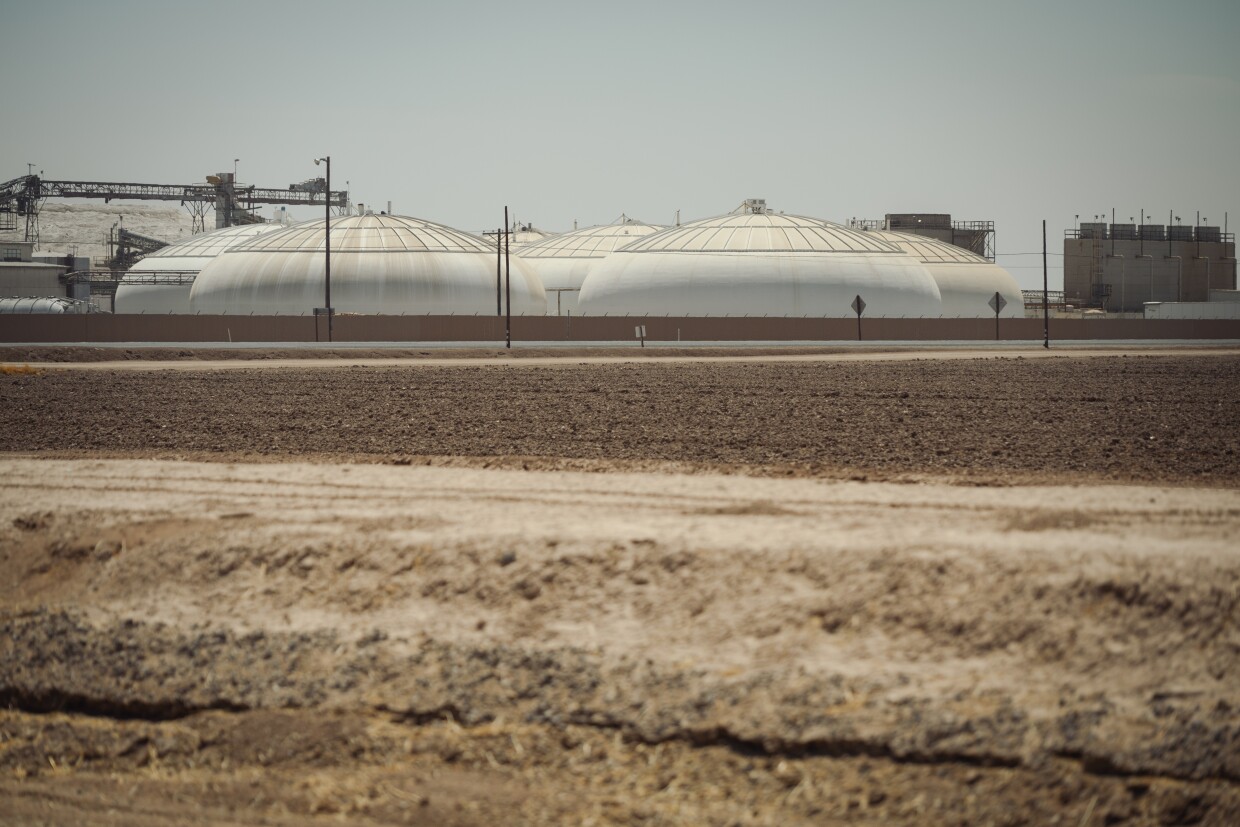
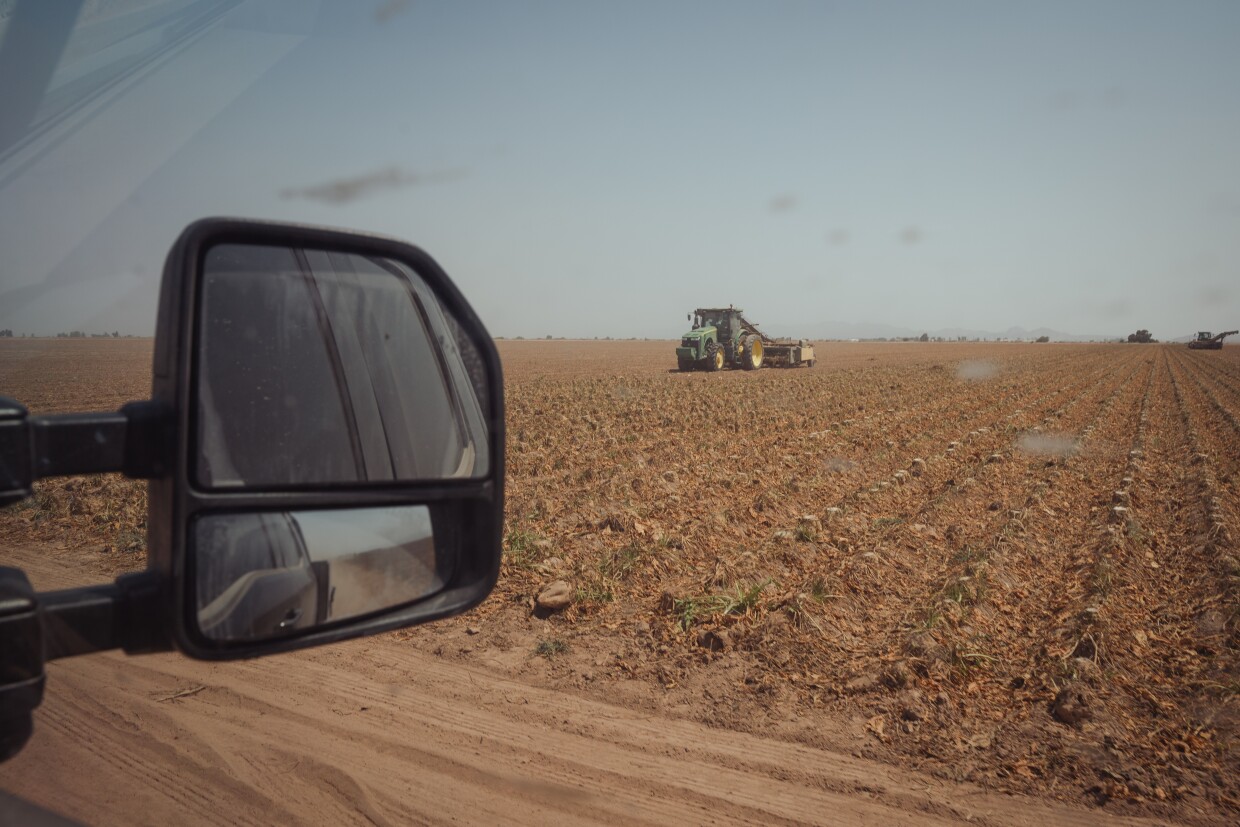
Imperial County officials haven’t given up on sugarbeets yet.
Almost immediately following the April announcement, the Board of Supervisors said they would ask Congress for the rights to build a new beet sugar plant in the Imperial Valley in a bid to keep the industry afloat.
“If we have a president who campaigned on ‘America First,’ yet we’re a net-importer of sugar, why the heck aren’t we increasing the allocations?” asked Bracken, the economic analyst, referring to President Donald Trump’s controversial policy slogan.
In June, the five supervisors flew to Washington D.C. with the request high on their list of priorities. They met with USDA officials to ask about a new sugar allocation for the valley.
But when KPBS spoke with County Chair John Hawk in late July, he was not optimistic about their chances.
Hawk said the county would need to secure the new allotment from Congress, which would face pushback from the powerful sugar industry and their lobbyists. They would need to build a brand new factory — Hawk said Southern Minnesota plans to dismantle Spreckels so it can’t be used in the future — which could cost upwards of $500 million.
He said the county would also need to find a new sugar processing company to partner with, like a local farming cooperative. Most U.S. sugar processing companies are either co-ops or private operations that also run sugar farms, according to the U.S. Government Accountability Office.
“We’re not saying no,” Hawk told KPBS. “But when we went to Washington, the answer was, ‘it's going to be very tough.’”
Hawk, a longtime sugarbeet farmer, has a financial stake in the industry’s future. In campaign filings this year, he listed Spreckels as a source of income for his company, Horizon Farms, which is valued at over $1 million.



Back in El Centro on that hot July day, Abatti and Gonzalez were focused on making it through to the end of the harvest.
In the distance, the arching peak of Mount Signal rose as a pair of harvesters rattled through another field of sugarbeets. The leafy green tops of these beets had already been trimmed away, leaving a dry field of small, white-capped stumps.
The machines drove converging blades into the ground, churning up dozens of the gnarled roots and sending them tumbling into the beds of trucks waiting to take them away. Pillars of dust floated into the hazy air.
Abatti said his family and other farmers would be able to adapt to the loss and find new crops to grow if needed.
“At the end of the day, the farmers, we can scale down,” he said. “You know, do more with less. It's kind of the farmer way.”
The county’s land and wealth are held largely by a small group of wealthy, white farmers — despite the fact that more than 85% of residents identify as Latino.
But Abatti said the closure did leave him with broader questions about the viability of agriculture in the future, especially as a younger farmer who graduated from college a few years before the pandemic.

For Gonzalez, the news has felt more dire. He isn’t sure where his family’s business will turn once their steadiest crop is gone.
“I’m going to try to stay busy,” he said. “Just stay afloat.”
For now, Gonzalez said, he has two plans: finish out this summer’s harvest and take a vacation with his family in San Diego.
After August, he said, they’ll see what comes next.






